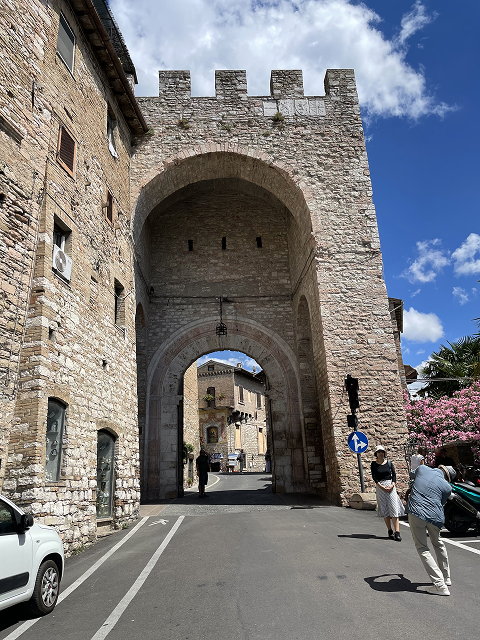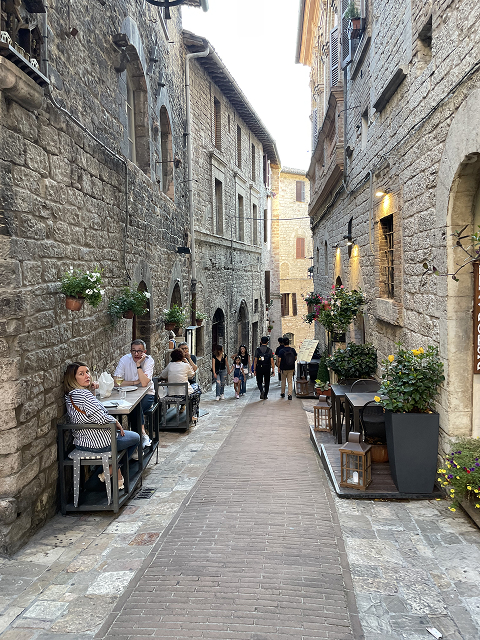2024 Italy-IARS
Reconciliation, development, and the nation state : Positioning the role of education
July 2024
Waseda Institute of Political Economy & Waseda Center for the Study of International Cooperation in Education Ph.D.
The relationship between education and the nation state is often thought to be one that is deep and longstanding. In many contexts, education and teacher education are used as tools for national political transformation, economic development, and social reforms (Gopinathan, 2013; Nazeer-Ikeda, 2021). In the particular case of resource-scarce Singapore, where human resources are its main assets, this education-state relationship has proven effective given its current economic and educational successes.
As a practitioner and researcher of education for some years, this relationship has always intrigued me. After a decade of academic musings, my book titled “Internationalization of teacher education and the nation state: Rethinking nationalization in Singapore”, was published in 2021. It discusses the enduring relationship of education and the nation state, and its sustainability for human capital development as we navigate the fourth industrial revolution.
However, my recent contemplations, admittedly influenced by theoretical reflections of reconciliation studies, are leaning towards thinking about education beyond human capital development.

Presentation at the International Association for Reconciliation Studies (IARS) 5th World Conference on Reconciliation
On 2nd July 2024, for the first time, I presented a draft of my working paper with these ideas. My presentation, titled “Reconciling fragments of a nation’s past through education: Examining policies in Singapore”, used Singapore as a case to argue that education for human capital development and education for reconciliation have overlapping and interdependent outcomes.
This is even though on the surface, both concepts seem to have contradicting goals – one more economic in nature and the other more socio-cultural. This presentation examined two aspects – firstly, how Singapore has overcome its historical challenges by prioritizing educational development, and secondly, how education for the nation state has done more than develop its human capital. It sought to answer the primary question – how has education in Singapore been engaged to reconcile the state intra-nationally?
Before delving into these, I presented my working definition of education for reconciliation. This was adapted from UNESCO’s perspective of reconciliation through global citizenship education which highlighted that it is important to confront “the legacies of violent histories, changing behaviours, and establishing institutions, systems and cultures” (2023, p. 4) to sustain peace. Additionally, I drew upon the wisdom of wider understandings that reconciliation should be sustainable, going beyond non-violent solutions (Leiner & Schliesser, 2018), deep (Tang, 2011; Wu & Yang, 2016) and moving towards cultural and social processes, building a “culture of peace” (Korostelina, 2012).
The presentation then walked its audience through Singapore’s historically entrenched education-economy nexus (Blackburn, 2017) from 1819 to the 1990s, extracting key residual fragments of the nation state’s painful history. It then presented how education has supported human capital development and intra-national reconciliation, pointing out that Singapore has confronted its historical fragmentations head on and then heavily relied on education for reconciliation, proving the argument that education for human capital development and education for reconciliation are overlapping and interdependent, rather than a zero-sum game.
Feedback
Two key questions came from the audience, both interestingly implicating the hand of the state. The first question sought to understand if the state had a positive attitude towards reconciliation between ethnic groups in Singapore and the second question asked about neo-liberal policies in Singapore’s education system. In essence, I responded that education policies are centrally developed in the nation state although historically and presently, the Ministry actively learns from and benchmarks against other education systems. Relatedly, given the importance of education for human capital development, the state undoubtedly supports reconciliation between ethnic groups and even with the nation’s history as a post-colonial post-occupied state. It will only be in the interest of the state that reconciliation is deep and sustained.
Informal feedback after the presentation praised its strong working definition and conceptual framework as they are both grounded in literature and the concrete case of Singapore.
Conference Inspirations
Having fully immersed in the four-day conference, there were many inspiring moments that allowed me to form connections to my own study. Amidst these, two key presentations stood out to me. Firstly, Professor Toyomi Asano’s speech as the Vice-President of the IARS spoke directly to my thoughts on reconciliation and the nation state. Professor Asano highlighted that whilst in many contexts, nation states remain relevant for growth and progress, in some contexts, an over-reliance on the state can post danger to security and reconciliation. With concrete examples of the current wars, mostly dominated by uncontrollable state leadership, his argument is succinct yet convincing.
Another key inspiration was Professor Kazuo Kuroda’s presentation on global education governance. Professor Kuroda shared that education, whilst once discussed mostly within nation states, has been thrusted to the international platform. The international community, comprising of states, international organizations, civil society, markets, amongst others, are addressing cross-border issues to find solutions and forge new directions. Understandings on nation state and governance from these two key presentations are aligned with other presentations I attended, which emphasize the points from the aspects of history, philosophy, religion, identity, social and transitional justice, reparation, as well as peacebuilding.
Alongside these formal presentations, were my informal chats with many international scholars. Of particular impact was my conversation with Ms. Shahira Fakher, an Israeli Muslim of Palestinian descent who lived in Jaffa. Shahira openly shared her life experiences with me and gave me first-hand insights of the situation in the area, which I deeply care about. Certainly, my positionality as a Muslim female researcher cannot be dismissed, as Shahira and I formed an instant connection.
From Two to Inevitably, Three Concepts
As I reflect on the presentations and my personal interactions, it became clear to me that a discussion on education and reconciliation cannot be complete without considering the hand of the state. Initial conceptualization of my topic was focused on two key concepts – educational development and reconciliation. Through this conference, however, my playful thoughts of going back to nation state discussions has not only been rekindled, but strengthened. Moving forward, I will seek to conceptualize my topic to interact with three key concepts – reconciliation, educational development, and the nation state.
Next Steps
While there are theoretical gaps to fill and much to work on, the next steps are clear for me. There is an urgent need to concretize my conceptual framework that bridges the three concepts. For the summer seminar in Germany and Greece, I plan to sharpen this framework with inputs from the team on my proposed presentation – “Reconciliation, development, and the nation state: Theorizing the role of education amidst paradoxes”. I am confident that the resulting discussion will add insights to my ongoing working paper on education beyond human capital development.

Selected References
- Blackburn, K. (2017). Education, industrialization and the end of empire in Singapore. New York: Routledge.
- Gopinathan, S. (2013). Education and the nation state. New York: Routledge.
- Korostelina, K. (2012). Forming a culture of peace: Reframing narratives of intergroup relations, equity, and justice. New York: Palgrave.
- Leiner, M. & Schliesser, C. (2018). Alternative approaches in conflict resolution. Cham, Switzerland: Palgrave.
- Nazeer-Ikeda, R. Z. (2021). Internationalization of teacher education and the nation state: Rethinking nationalization in Singapore. Oxon, United Kingdom: Routledge.\
- Tang, Shiping. (2011). Review article: reconciliation and the remaking of anarchy. World Politics, 63(4): 713–751.
- UNESCO. (2023). Reconciliation through global citizenship education. Paris: UNESCO.
- Wu, C. & Yang, F. (2016). Reconciliation and peace building in international relations: An empirical analysis of five cases. China Political Science Review, 1: 645–669.

